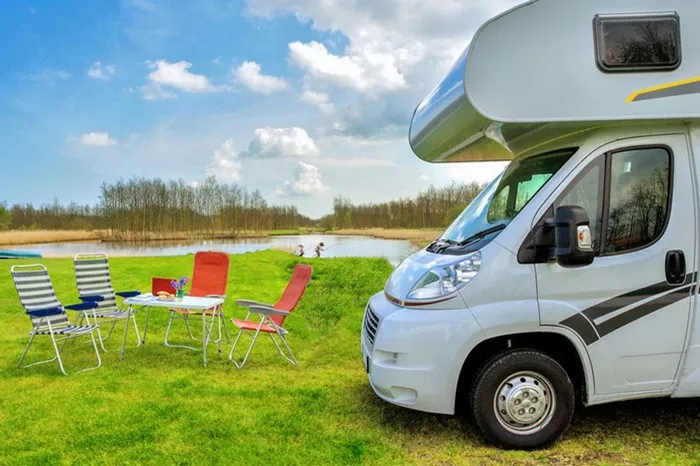Recreational vehicles (RVs) have become increasingly popular among Canadians who seek the freedom to explore the great outdoors. With the ability to travel comfortably and conveniently, an RV provides a unique way to experience Ontario’s breathtaking landscapes, from the tranquil beauty of Algonquin Provincial Park to the stunning shores of Lake Huron. However, owning an RV also comes with responsibilities, one of which is securing the right insurance coverage. RV insurance is not only a legal requirement in Ontario, but it also provides financial protection against potential damages, accidents, and liabilities.
In this comprehensive guide, we will explore the factors that influence RV insurance costs in Ontario, the types of coverage available, how to save on premiums, and frequently asked questions about RV insurance. Whether you’re a seasoned RV owner or considering purchasing one, this article will equip you with the knowledge to make informed decisions about insuring your recreational vehicle.
Understanding the Basics of RV Insurance in Ontario
Before diving into the costs, it’s essential to understand what RV insurance entails. RV insurance in Ontario is designed to protect you, your vehicle, and others on the road. It typically covers motorhomes, camper vans, travel trailers, fifth wheels, and other types of recreational vehicles. The insurance policy can be customized to suit your specific needs, offering a range of coverage options similar to standard auto insurance but tailored to the unique aspects of RVs.
Types of RVs Covered by Insurance
Class A Motorhomes: These are the largest and most luxurious RVs, often resembling buses. Due to their size and amenities, they tend to have higher insurance premiums.
Class B Motorhomes: Also known as camper vans, these are smaller and more maneuverable than Class A motorhomes, typically resulting in lower insurance costs.
Class C Motorhomes: These RVs are built on a truck or van chassis, offering a balance between size and amenities. Their insurance costs are generally between Class A and B motorhomes.
Travel Trailers: Non-motorized RVs that are towed by another vehicle. Insurance for travel trailers is generally more affordable since it does not cover the vehicle that tows the trailer.
Fifth Wheels: Larger travel trailers that are towed using a special hitch. Insurance costs are similar to those for travel trailers but may vary based on size and value.
Factors Affecting RV Insurance Costs in Ontario
The cost of RV insurance in Ontario can vary significantly based on several factors. Understanding these factors can help you estimate your potential premiums and identify areas where you might save on costs.
1. Type and Size of the RV
The type, size, and value of your RV are primary determinants of your insurance costs. Larger, more expensive RVs like Class A motorhomes typically have higher premiums due to the increased potential for damage and the cost of repairs or replacement. Conversely, smaller, less expensive RVs like Class B motorhomes or travel trailers generally have lower premiums.
2. Usage of the RV
How you use your RV plays a crucial role in determining insurance costs. If you use your RV as a full-time residence, your insurance premium will likely be higher than if you use it occasionally for vacations. Full-time RV insurance often includes additional coverages similar to homeowners’ insurance, which can increase the overall cost.
3. Driving Record
Your driving history is a critical factor in determining your insurance premium. A clean driving record with no accidents or traffic violations will generally result in lower insurance costs. On the other hand, a history of accidents or violations can lead to higher premiums, as insurers view you as a higher risk.
4. Location
Where you store and primarily use your RV can impact your insurance costs. For example, if you live in an area prone to severe weather, such as heavy snowfalls or flooding, your insurance premiums may be higher to account for the increased risk of damage. Additionally, RVs stored in urban areas may have higher premiums due to the higher likelihood of theft or vandalism.
5. Coverage Options
The type and amount of coverage you choose will directly affect your insurance costs. Basic liability coverage, which is mandatory in Ontario, is typically the least expensive option. However, many RV owners opt for additional coverage, such as comprehensive, collision, and contents insurance, to protect their investment fully. The more coverage you add, the higher your premium will be.
6. Deductible Amount
The deductible is the amount you pay out of pocket before your insurance kicks in. Choosing a higher deductible can lower your premium, but it also means you’ll pay more in the event of a claim. Conversely, a lower deductible increases your premium but reduces your out-of-pocket costs if you file a claim.
7. Claims History
If you have a history of filing insurance claims, especially multiple claims within a short period, insurers may view you as a higher risk, leading to increased premiums. A claims-free discount is often available for those with a clean claims history, which can help reduce costs.
8. Age and Experience
Your age and experience as a driver can also influence your RV insurance costs. Younger, less experienced drivers may face higher premiums due to the perceived higher risk. Conversely, older, more experienced drivers may qualify for discounts based on their driving history and experience.
See Also: 8 Best RV Insurance Options in Canada
Average Cost of RV Insurance in Ontario
The average cost of RV insurance in Ontario varies widely depending on the factors discussed above. However, to give you a general idea:
Class A Motorhomes: $1,500 to $3,000 per year
Class B Motorhomes: $1,000 to $2,000 per year
Class C Motorhomes: $1,200 to $2,500 per year
Travel Trailers: $300 to $800 per year
Fifth Wheels: $500 to $1,000 per year
These figures are approximate and can vary based on your specific circumstances. It’s important to obtain quotes from multiple insurance providers to get a more accurate estimate for your situation.
Types of RV Insurance Coverage
When insuring your RV in Ontario, you’ll have several coverage options to choose from. Understanding these options can help you determine the level of protection you need and how much it will cost.
1. Liability Coverage
Liability coverage is mandatory in Ontario and covers damages or injuries you cause to others in an accident. This includes bodily injury and property damage. The minimum liability coverage required by law is $200,000, but many RV owners opt for higher limits, such as $1 million or more, to provide additional protection.
2. Collision Coverage
Collision coverage pays for repairs or replacement of your RV if it’s damaged in an accident, regardless of who is at fault. This coverage is particularly important for newer or more expensive RVs, as repair costs can be significant.
3. Comprehensive Coverage
Comprehensive coverage protects your RV against non-collision-related damages, such as theft, vandalism, fire, or natural disasters. This coverage is essential for safeguarding your investment, especially if you store your RV in an area prone to such risks.
4. Contents Coverage
Contents coverage insures the personal belongings inside your RV, such as electronics, clothing, and kitchenware. This coverage is especially important if you use your RV as a full-time residence, as it provides protection similar to homeowners’ or renters’ insurance.
5. Emergency Roadside Assistance
Emergency roadside assistance covers the cost of services like towing, battery replacement, flat tire repair, and lockout assistance. This coverage can be a lifesaver if you experience a breakdown while traveling in remote areas of Ontario.
6. Vacation Liability
Vacation liability provides coverage for accidents that occur while your RV is parked at a campsite or RV park. This coverage is particularly useful for RV owners who frequently camp or stay in RV parks.
7. Full-Time RV Insurance
If you live in your RV full-time, you’ll need full-time RV insurance, which offers additional coverage similar to a homeowners’ insurance policy. This may include liability coverage, contents coverage, and coverage for attached accessories like awnings or satellite dishes.
8. Uninsured/Underinsured Motorist Coverage
This coverage protects you if you’re involved in an accident with a driver who has no insurance or insufficient insurance to cover the damages. It can help pay for medical expenses, lost wages, and other costs associated with the accident.
Conclusion
RV insurance is a crucial aspect of owning a recreational vehicle in Ontario. While the cost of insurance can vary based on several factors, understanding your coverage options and taking steps to reduce your premiums can help you find the right policy at an affordable price. Whether you’re using your RV for weekend getaways or as a full-time residence, having the proper insurance coverage will give you peace of mind as you explore the open road. Remember to shop around for quotes, consider bundling your policies, and maintain a clean driving record to maximize your savings on RV insurance.




















